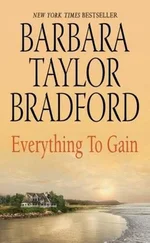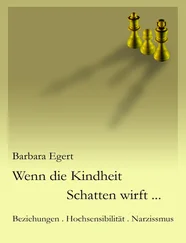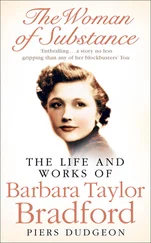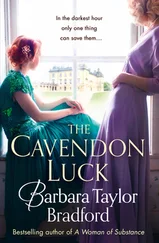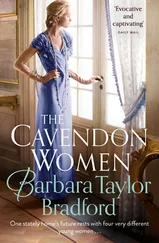Emma went immediately into the small study next to the drawing room, intending to work for an hour. She was wide awake and restless, and she always retreated into work when she wanted to avoid dwelling on unpleasant matters. But moonlight was pouring in through the french doors and she stood staring at the garden, admiring its beauty.
Impulsively Emma pushed open the doors and stepped out on to the long flagged terrace that ran the entire length of this side of the house. It was a lovely August night, so still and balmy the soft air seemed to enfold her. Emma breathed deeply, feeling a sudden sense of release, an easing of her worries. She looked up. The sky was soaring and hollow, a deep pavonian blue, clear and without cloud, and the new moon was a perfect sphere whose glassy surface was unmarred, and its sharp radiance cast a silvery sheen on the trees and shrubs, the rolling lawn and the glorious flower beds that punctuated the perimeters of the garden in the dusky shadows of old stone walls matted with ivy.
Emma swept along the terrace and stood poised at the top of the flight of stone steps that led down into the garden, her hand resting on one of the great urns positioned at their edge. Her eyes roved over her garden, so typically English, pastoral in its gentle beauty and filled with tranquillity. It was hard to believe there was a war raging on the other side of the Channel or to accept the fact that thousands of young Englishmen were preparing to enter that grim and bloody battle.
Emma proceeded slowly to the bottom of the garden, heading for her own special spot, the sheltered corner she loved the most. Here, near an old sundial, magnificent rhododendron bushes and great clutches of peonies spilled forth their translucent pinks and mauves and whites. Joe had wanted to grow roses in this area, but Emma had objected in the strongest possible terms, not permitting one single bush to be planted anywhere in the garden. She had never told Joe that she could not abide that particular flower or that its perfume sickened her to the point of violent nausea.
A splendid beech tree, huge and spreading with its branches dipping down to touch the ground, was a protective arch of interwoven greens above an old garden seat. ‘Mummy’s seat’, the children called it, for it was here that she always came when she wanted to escape the activities of her busy household, to think and to relax, and they had learned never to trespass on her solitude in this private place. Thoughts of Joe intruded into her mind, piercing her recently acquired composure. She stiffened as she recalled with dismay his arduous lovemaking. And then she found herself thinking: Poor Joe. He really can’t help himself. Her anger was evaporating so unexpectedly Emma was astonished at this change in her emotions.
Earlier, pinned under Joe and raging with resentment, Emma had contemplated leaving him. Now she reviewed this idea and faltered. A separation was unthinkable, not only because of the children and their loving attachment to Joe and his to them, but because she herself needed Joe for a number of good reasons. Furthermore, Joe would never let her go. He loved her to a point of distraction. Sometimes she wished Joe was a philanderer and that when she spurned him, on those rare occasions, he would seek solace in more responsive arms. She had come to realize this was perfectly ridiculous. Joe wanted only her. No other woman could satisfy his urgent needs because she was the sole object of his desire.
Emma sat back on the seat and considered her marriage with objectivity, finally admitting that she had no intentions of changing the circumstances of her life. The alternatives did not appeal to her, and whatever else Joe was, he was a buffer between her and those who might wish to hurt her or Edwina. Also, she had to acknowledge that despite her basic unhappiness in her marriage, she was fond of Joe. He was considerate most of the time and he had never interfered with her business enterprises. Of course, he was phlegmatic and opinionated, and often flew into tantrums if she thwarted him, or sulked for days about inconsequential things Yet despite these traits, which singularly irritated her, he was not a bad man.
Emma was too big a woman to harbour grudges and she acknowledged anew that Joe Lowther had been a good husband in a variety of other ways. She remembered some of his generous gestures now. He had bought her this house, for one thing, in December of 1910. That had been four months after her marriage, when she was carrying their child. In the preceding June, just before their wedding, Joe had come into another unexpected inheritance, one far more impressive than his mother’s legacy. His ancient great-aunt, on the maternal side of the family, had died at the age of ninety-one. Since she was childless and without any other relatives, Joe had been the sole beneficiary in her will. Apart from the one-hundred-and-fifty-thousand pounds in cash and her large house in Old Farnley, he had become the new owner of four commercial properties in the centre of Leeds. These were operating factory buildings permanently rented to a tanner, a shoe manufacturer, a printer, and a wholesaler of dry goods. The annual income from these properties so far exceeded Joe’s expectations he was astounded. He had weighed his financial situation and decided he could easily afford to buy the vacant house in the Towers, and maintain its upkeep on a comfortable scale.
The house stood in a private and secluded little park in Upper Armley that was surrounded by high walls and fronted by great iron gates. A circular driveway led up to the eight fine mansions situated within the park’s precincts, each one self-contained, encircled by low walls and boasting a lavish garden. The moment Emma had walked into the house on that cold December day she had wanted it, marvelling at its grandness and delighted with its charming outlook over the garden and the park itself. There were numerous airy and well-proportioned reception rooms on the main floor, including a formal drawing room, an impressive dining room, a parlour, and a small study. At the back of the house there was a huge kitchen, a butler’s pantry, servants’ quarters, and a washhouse. Upstairs eight bedrooms of various dimensions and three bathrooms provided ample space for Joe’s family, soon to be increased with the impending arrival of the baby. The third floor, under the eaves of the old grey stone house, was composed of two attics and a cedar-lined room for storage.
Because of its size, and Emma’s insistence that she continue to run her business after the child’s birth, Joe had eventually agreed to engage a small staff. Mrs Fenton, a local widow, had been installed as the housekeeper-cook, and Mrs Hewitt, Joe’s former charwoman, came daily to clean. Mrs Hewitt’s niece, Clara, originally engaged as nursemaid for Edwina, had remained with them to take care of Christopher, born in June of 1911.
The day Emma, Edwina, and Joe moved into the house Emma had experienced such a profound sense of security she had relaxed for the first time in years. In this fine mansion, so elegant and secluded, Emma was at last convinced she was absolutely protected from the Fairleys, and in particular Gerald Fairley. Emma shivered, recalling his unanticipated and violent intrusion into her life four years ago. That hideous April evening was still vividly etched on her mind and Emma knew she would never forget it. She had lived in a state of burgeoning anxiety for months after that visit.
It had taken Emma several weeks to convince David Kallinski that she would not reverse her decision. Eventually he accepted it with sorrow, and although they remained friends and partners, David wisely limited their association to business. Understanding his motives, whilst yearning for him, Emma had disguised her feelings, displaying no emotions, hoping this would help to ease his pain.
Читать дальше
Конец ознакомительного отрывка
Купить книгу

